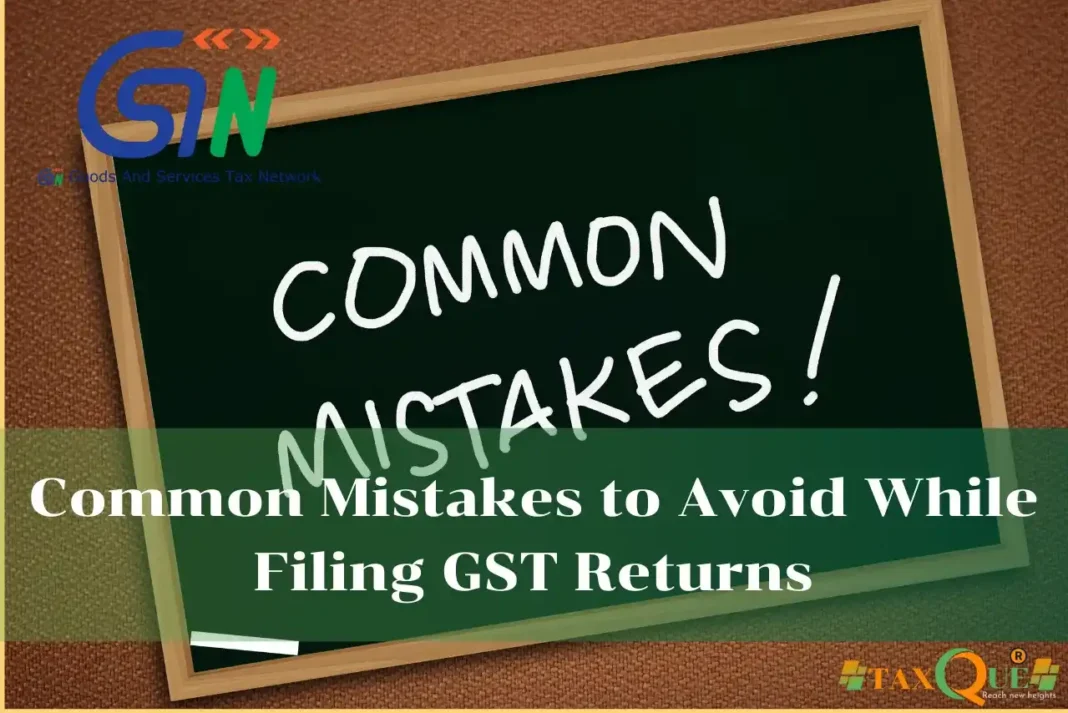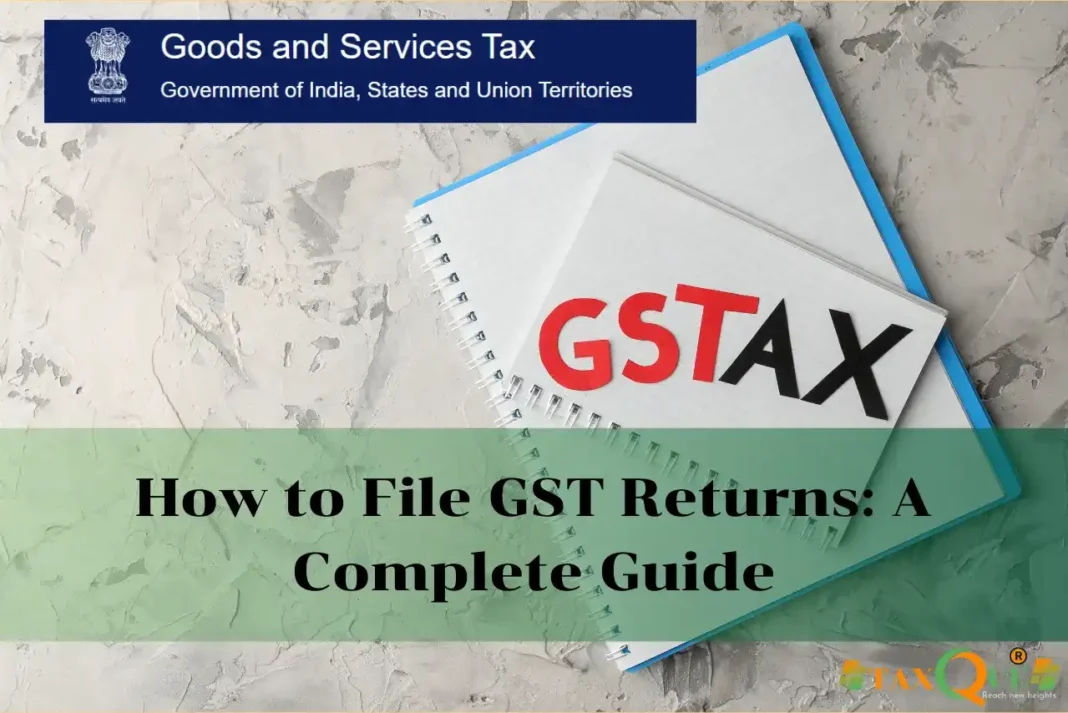Avoid These Common Mistakes When Filing GST Returns in 2025
Introduction
Filing GST returns is an essential task for businesses registered under the Goods and Services Tax system in India. However, the process can be tricky, especially with the variety of forms, deadlines, and documentation involved. Even the smallest mistake can lead to penalties, interest, or legal issues. In this blog, we will walk you through the most common mistakes businesses make when filing GST returns and how you can avoid them to stay compliant and streamline the process.
What Are GST Returns?
GST returns are documents businesses file with the government to report their sales, purchases, tax liabilities, and taxes paid. These returns help ensure that businesses comply with the GST Act and are accountable for the taxes they owe. Failing to file returns correctly can result in penalties and loss of the Input Tax Credit (ITC), which can significantly affect cash flow and business operations.
Why It Matters
- Avoid Penalties: Incorrect returns can lead to fines and interest charges.
- Ensure ITC Eligibility: Proper filing is crucial to claim Input Tax Credit.
- Maintain Business Reputation: Timely and accurate returns help maintain trust with suppliers and customers.
- Legal Compliance: Filing returns is a legal requirement under GST.
Common Mistakes to Avoid While Filing GST Returns
1. Not Filing Returns on Time
One of the most common mistakes businesses make is missing the deadlines for filing GST returns. Delayed filing of GSTR-3B or GSTR-1 can attract heavy penalties and interest charges.
Tip: Ensure that you have a system in place to remind you of GST deadlines, which typically fall on the 20th of every month for GSTR-3B and the 10th of every month for GSTR-1.
2. Incorrect HSN/SAC Codes
HSN (Harmonized System of Nomenclature) codes for goods and SAC (Service Accounting Code) for services are essential for proper GST classification. Using the wrong codes can lead to incorrect tax rates being applied, resulting in errors in returns and payments.
Tip: Double-check the HSN/SAC codes for all goods and services to avoid misclassification. You can refer to the official GST website for the correct codes.
3. Misreporting Sales and Purchases
Incorrectly reporting your sales and purchases can lead to discrepancies between your outward and inward supplies. Businesses often fail to report all sales transactions or omit some purchases, which can lead to penalties for underreporting taxes.
Tip: Keep accurate records of all transactions, including sales, returns, and invoices. Use accounting software to ensure all entries are tracked and reported.
4. Failing to Match Purchase Invoices (GSTR-2A)
GSTR-2A is an auto-populated return that shows the purchases made by the taxpayer. Failing to verify that the invoices reported in GSTR-2A match with the actual purchases can result in a mismatch, which may disqualify you from claiming Input Tax Credit (ITC).
Tip: Regularly cross-check your GSTR-2A to ensure that your purchases are properly reported by your suppliers and that the data matches your records.
5. Incorrect Calculation of GST Liability
Many businesses make errors in calculating their GST liability by either underestimating or overestimating the tax due. This can lead to either penalties or overpayment of tax, which could have been used for future credits.
Tip: Use automated tools or hire professionals to ensure accurate calculation of GST. Keep track of both output tax (sales) and input tax (purchases) to accurately report your net liability.
6. Not Reporting Exempt or Zero-Rated Goods/Services
Some goods and services are exempt from GST, while others are zero-rated (e.g., exports). Failing to accurately report these transactions can lead to incorrect filings.
Tip: Be aware of the GST status of the goods and services you provide. Ensure that exempt and zero-rated transactions are clearly reported to avoid any issues during audits.
7. Ignoring Amendment of Incorrect Returns
If you realize there was an error after filing a GST return, it’s important to amend the return before it’s too late. Many businesses fail to amend incorrectly filed returns, which can lead to discrepancies during audits or tax inspections.
Tip: If an error is found, file an amended return immediately to correct the mistake. The GST portal allows businesses to revise returns within a specified period.
8. Not Filing NIL Returns
Even if your business has no transactions in a given month, you are still required to file a NIL return. Not doing so can lead to the suspension of your GST registration or penalties for non-compliance.
Tip: If your business has no sales or purchases during a reporting period, ensure that you file a NIL return to maintain compliance.
9. Failing to Reconcile GSTR-1 and GSTR-3B
Failure to reconcile the data in GSTR-1 (sales return) and GSTR-3B (summary return) is a mistake many businesses make. Discrepancies between the two forms can result in penalties and loss of Input Tax Credit.
Tip: Always reconcile GSTR-1 with GSTR-3B to ensure consistency and accuracy in your filings.
10. Not Keeping Proper Documentation
Inadequate documentation is a significant issue when filing GST returns. Without proper invoices, receipts, and records of transactions, businesses may face challenges during audits or GST assessments.
Tip: Maintain a well-organized filing system and store invoices and receipts electronically for easy access and future reference.
Conclusion
Filing GST returns might seem daunting, but avoiding common mistakes can make the process smoother and more efficient. By staying organized, double-checking data, and ensuring accurate reporting, you can avoid penalties and maintain a compliant business. Keep track of deadlines, reconcile your returns regularly, and keep your documentation up-to-date to stay on top of your GST responsibilities.
FAQs
Q1. What are the consequences of missing the GST filing deadline?
Missing the filing deadline results in penalties, interest charges, and loss of Input Tax Credit. Late fees range from Rs. 50 to Rs. 100 per day, depending on the return type.
Q2. Can I revise a GST return after submission?
Yes, you can revise a GST return within the prescribed period (usually within the same financial year).
Q3. What should I do if I realize I’ve used the wrong HSN code?
If you’ve used the wrong HSN code, you can amend the return by filing a correction in the next return period.
Q4. How do I avoid GST calculation errors?
Automate the process with accounting software, cross-check your calculations, and ensure you account for both sales and purchases accurately.
Q5. Can I claim Input Tax Credit for exempt goods?
No, Input Tax Credit cannot be claimed on exempt goods and services. You can only claim it for taxable goods and services.




![How to Register a Private Limited Company in India [2025 Guide]](https://blog.taxque.in/wp-content/uploads/2025/05/11_11_11zon_26_11zon-1068x713.webp)
